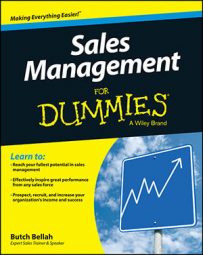When sales managers must dole out disciplinary action and put together a written warning, be as specific as possible. Even if you and the salesperson both know exactly what happened, you need to spell it out so that an outside party who knows nothing about the situation could read the warning a year later and be able to understand exactly what prompted your actions.
Being vague is not only poor management practice, but could leave you exposed should any issues arise in the future — and not just with this employee.
If you need to issue a performance warning, follow these steps:
Do your due diligence.
Never respond to accusations of others without doing your own investigation, talking to those involved, and arriving at your own decision. If the offense is serious enough to warrant an official warning, it's serious enough for you to put in the time to get to the bottom of it before reacting in a manner that may come back to haunt you.
Meet as soon as possible.
After you complete your investigation, meet with the employee immediately. Don't wait. These things are never fun, but they get less enjoyable the longer you wait. Everyone involved deserves to have the situation rectified as soon as possible.
Provide specific details of the offense.
For the sake of discussion, say one of your salespeople has an attendance issue. You need to know the dates he was late or didn't come to work.
You can't go with just, "You've been out a lot lately." Be overly specific, if anything. If you know he arrived at 8:27 for an 8:15 sales meeting, don't just say, "You were late," include the time he arrived, the date, and so forth. You cannot have too many details on the offense.
List the names of others involved.
If the violation affected or included others, list everyone's name and how each figured into the act. If someone else was also disciplined, include that information. In a case with a victim, get a statement from the injured party regarding the infraction and include it in all materials and reports.
If some victims are anonymous, keep their names from the offending employee but make victims' names part of a private file kept only by the human resources department.
Provide specific feedback.
Your proposed solution should not read, "Start getting here on time." Rather, provide specific direction to your employee about how you expect him to perform and what behavior you expect in the future.
If you're giving him a certain amount of time to correct a deficiency, note the due date for observable correction and detail how and when you and the employee will come back together to review whether appropriate action has been taken and the issue has been corrected.
List specific consequences.
You see the pattern developing: Be specific. If the next step is automatic termination, say so. If the next offense will result in a suspension, put that in writing.
Nobody likes to talk about legal issues, but they're a real part of the business world today. You need to familiarize yourself with your company's policy so that you don't expose your organization to litigation because of how you handle a personnel situation. In some instances, you can be held personally responsible in addition to your organization. To say this matter is an important one is an understatement.

